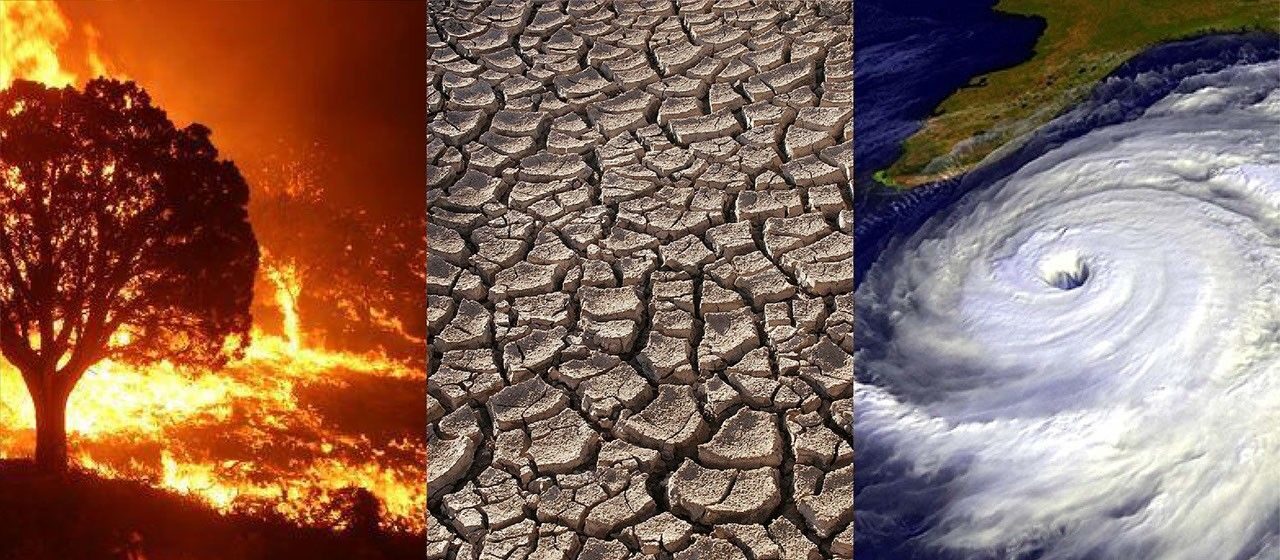Emerging Water Scarcity Issues and Innovative Solutions
Here I would like to present several additional sources on innovative potential solutions to global water scarcity issues and the importance of our planet’s water.
First, this podcast from NPR’s Short Wave, titled “India’s Plan to Reroute Rivers Could Have Unintended Consequences on Rainfall,” discusses a proposed solution to India’s water scarcity issues. “Host Emily Kwong talks to journalist Sushmita Pathak about her recent story on the project.” However, while discussing this so-called solution, the intricacies of, and potential hazards to, the entire hydrologic cycle are emphasized.
Second, the article “Water Treaty Between Mexico and U.S. Faces Biggest Test in 80 Years,” showcases some of the political implications of water scarcity. Reporter Bria Suggs explains the water-sharing treaty between the United States and Mexico and how climate change and population increases are stressing this agreement. She writes:
Eighty years ago, the United States and Mexico worked out an arrangement to share water from the two major rivers that run through both countries: the Rio Grande and the Colorado. The treaty was created when water wasn’t as scarce as it is now…
Now, those water-sharing systems are facing one of the biggest tests in their history…
Unpredictable weather patterns due to climate change, growing populations, aging infrastructure and significant water waste have left both countries strapped for water and have escalated tensions along the border…
Third, in the following YouTube video, “Genius Water Engineering Restored,” we find examples of the genius of Indigenous, or ancient, civilizations that have been rescued from the dustbin of history as modern societies search for solutions to their water scarcity issues. The successful renovation of these extraordinarily innovative solutions from the past shows us that there is much to learn from history. Can you see any difference between this approach and the government-proposed project from the podcast above? Compare the bottom-up approach to the top-down approach. Which approach seems to be best for the common people and nature?
Lastly, I am going to share several links to articles that discuss several innovations that have been created as possible solutions to the world’s water scarcity issues.
However, as we consider these various proposed solutions, we must keep several things in mind. Most importantly, the interconnected nature of our water cycle, and Earth as a whole, must be kept to the fore of our minds. With this in mind, can these “solutions” actually cause more harm to the environment? Do they take a bottom-up approach? Will they help the common people and help restore balance to the natural systems of our planet? Are they practical and affordable enough to implement on any impactful scale? Additionally, we must remember that no one solution will be enough or work in every environment. Therefore, we will need many innovative solutions working together.
“Turning Seawater Into Fresh Water Through Solar Power,” Environmental News Network; https://www.enn.com/articles/75215-turning-seawater-into-fresh-water-through-solar-power
“Innovation That Can Solve Housing’s Water Scarcity Challenge,” Forbes; https://www.forbes.com/sites/jennifercastenson/2024/03/06/innovation-that-can-solve-housings-water-scarcity-challenge/
“Innovative Technologies For Water Conservation And Management,” Water Online; https://www.wateronline.com/doc/innovative-technologies-for-water-conservation-and-management-0001
Featured image: https://leadingedgeteams.com/take-a-deep-dive-into-business-problems-to-find-solutions/




I’m glad you’re continuing to spotlight ancient/indigenous wisdom, so much of which we’ve neglected in our rush to capitalize nature and extract profit from increasingly scarce resources. I taught environmental ethics one semester with a focus on native and indigenous environmental values. Should do it again.
I think that it is great that you focused on indigenous environmental values, and it would be a great thing to incorporate again. Thank you!